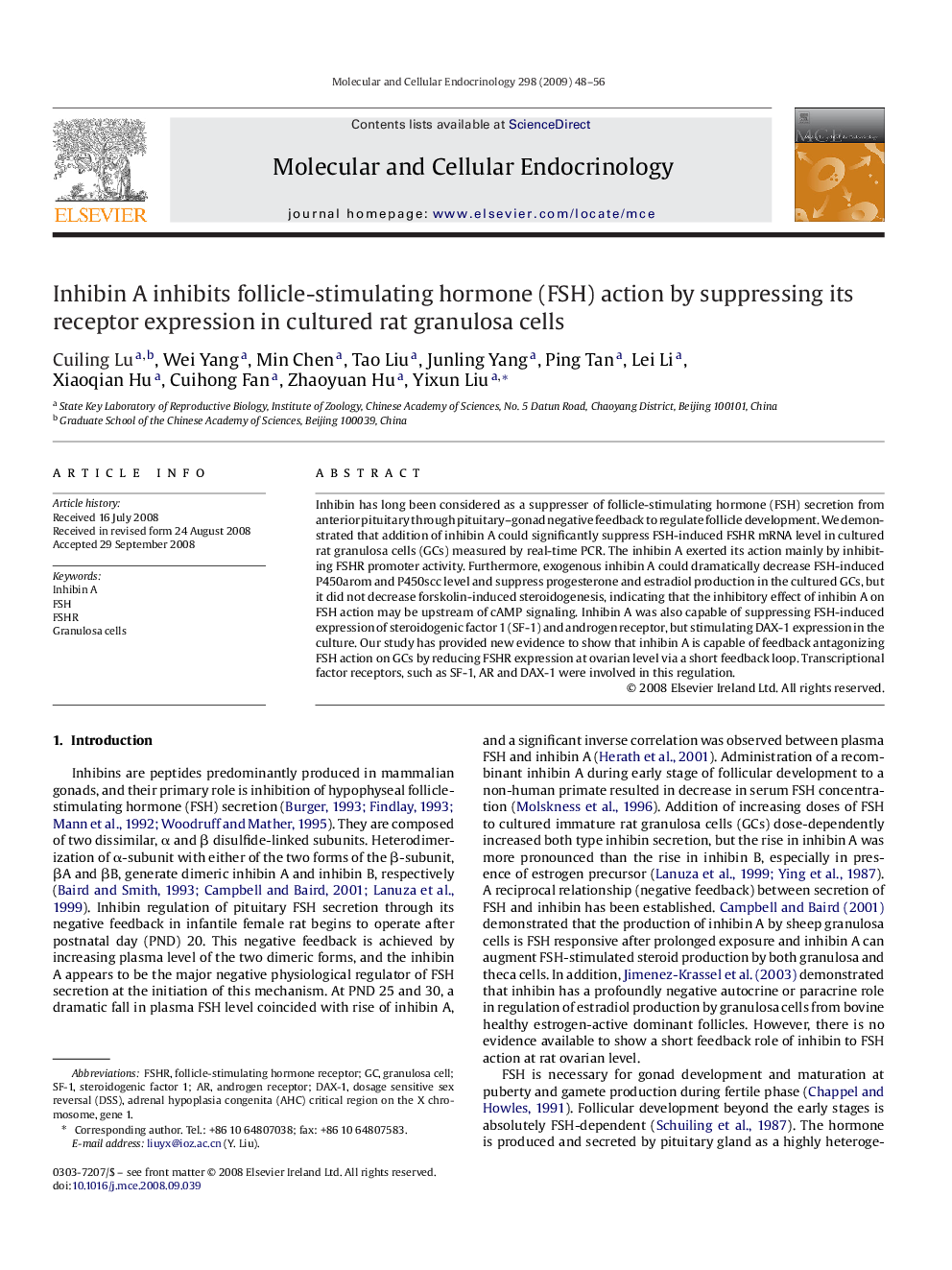| Article ID | Journal | Published Year | Pages | File Type |
|---|---|---|---|---|
| 2197560 | Molecular and Cellular Endocrinology | 2009 | 9 Pages |
Inhibin has long been considered as a suppresser of follicle-stimulating hormone (FSH) secretion from anterior pituitary through pituitary–gonad negative feedback to regulate follicle development. We demonstrated that addition of inhibin A could significantly suppress FSH-induced FSHR mRNA level in cultured rat granulosa cells (GCs) measured by real-time PCR. The inhibin A exerted its action mainly by inhibiting FSHR promoter activity. Furthermore, exogenous inhibin A could dramatically decrease FSH-induced P450arom and P450scc level and suppress progesterone and estradiol production in the cultured GCs, but it did not decrease forskolin-induced steroidogenesis, indicating that the inhibitory effect of inhibin A on FSH action may be upstream of cAMP signaling. Inhibin A was also capable of suppressing FSH-induced expression of steroidogenic factor 1 (SF-1) and androgen receptor, but stimulating DAX-1 expression in the culture. Our study has provided new evidence to show that inhibin A is capable of feedback antagonizing FSH action on GCs by reducing FSHR expression at ovarian level via a short feedback loop. Transcriptional factor receptors, such as SF-1, AR and DAX-1 were involved in this regulation.
